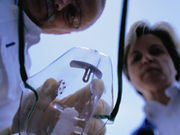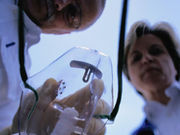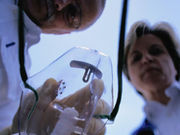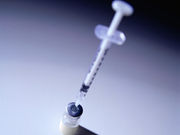Anesthesiology
Home Anesthesiology
ASA: Peri-Op Medication Errors Far Too Common
And most of the mistakes are preventable, researchers report
American Society of Anesthesiologists, Oct. 24-28
ANESTHESIOLOGY 2015 The annual meeting of the American Society of Anesthesiologists was held from Oct. 24 to 28 in San Diego and attracted...
Nearly 15 Percent of Plans Lack In-Network Specialists
Most commonly excluded specialists are in endocrinology, rheumatology, and psychiatry
ASA: Patients Undergoing Surgery Should Stay on Statins
Discontinuing med may boost mortality risk during recovery from non-cardiac operations
ASA: Surgeon’s Calming Words May Ease Stress of Surgery
Researchers found reassuring voice might even beat anti-anxiety meds in lowering pre-op distress
ASA: Peri-Op Surgical Home Beneficial After Joint Arthroplasty
Data for second year of implementation show positive results in LOS, discharge destination
ASA: Nitrous Oxide Deemed Safe for Surgical Patients With CVD
Study eases concerns about the use of the anesthetic in non-cardiac procedures
Blanket + Warmed IV Best for Hypothermic Infants
Findings compared to conventional blanket, electric blanket for post-surgery hypothermia
Caudal Regional Anesthesia Not Linked to Fistula Formation
No link for fistula formation with penile, caudal block in children undergoing primary hypospadias repair
Needle Type Doesn’t Change Epidural Vascular Uptake Risk
Similar risk of inadvertent vascular injection seen with blunt-tip, pencil-point needles















